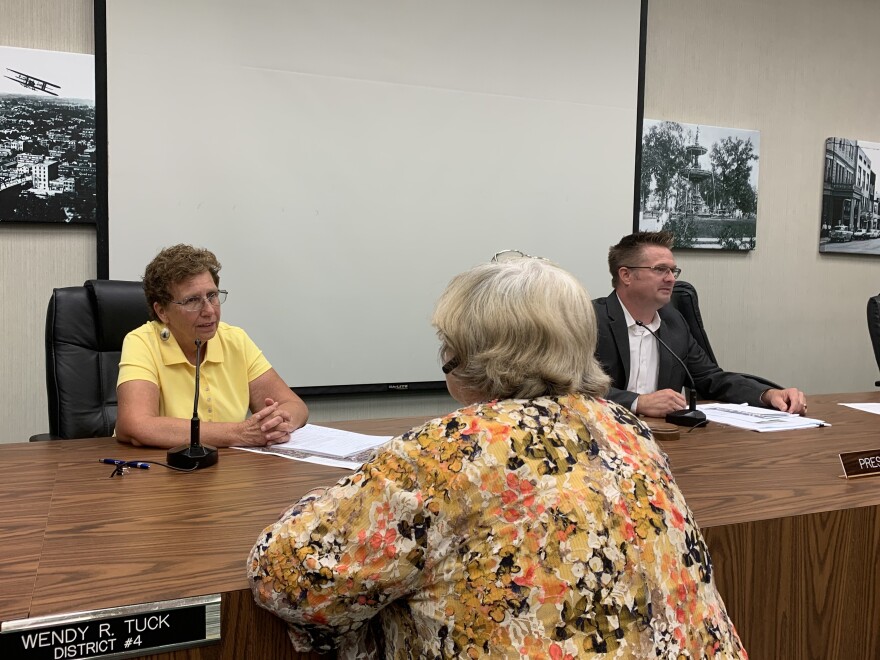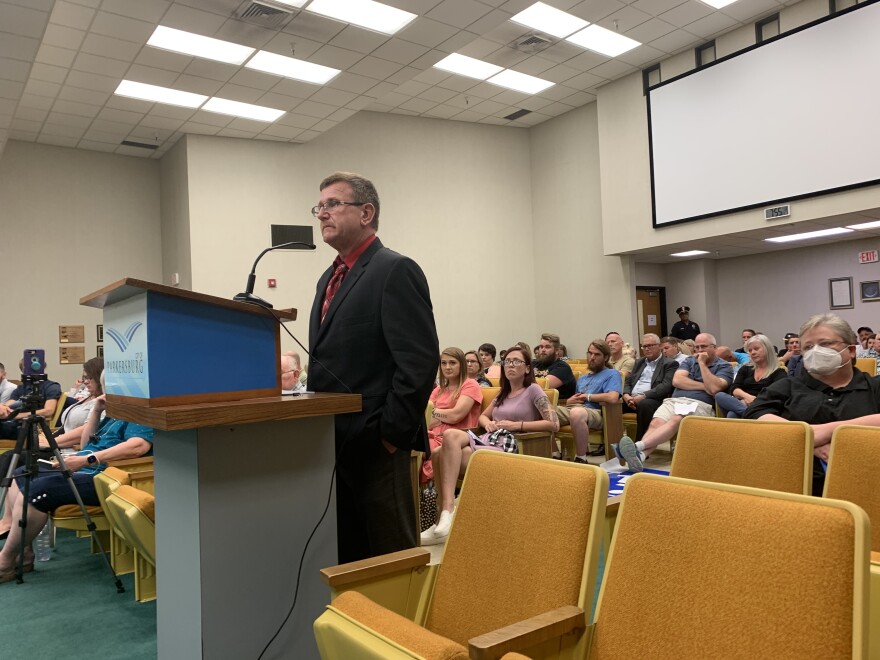Today, Cabell County and the City of Huntington made their last arguments on how 3 drug suppliers sped up the regional opioid crisis, and why these business need to pay up. The city governments are asking for $2.5 billion, stating that cash might be used to reward and support those with addiction disorders.
Throughout the exact same week, Parkersburg made a relocation in an entire other instructions. The city does not desire to see any brand-new treatment centers or sober living homes for the time being.
” In the start, we required arehab center Do we require 8? No,” stated Parkersburg City Council member Sharon Kuhl.
In an 8-1 vote Tuesday night, the council prohibited any brand-new addiction treatment centers and recovery homes from opening in the city for about a year.
Kuhl says she’s discovering recovery homes opening in residential locations and near schools. There are no guidelines on where recovery or treatment homes can find. They can be incorporated into communities similar to any brand-new property buyer. However for Kuhl, she desires the folks currently living there to have a direct.
” They resemble a snake in the lawn,” Kuhl stated. “If they would walk around to the community, and let them understand, inform the next-door neighbors what they’re going to do … I do not believe there would be such an protest.”
She stresses that rehab programs are bringing susceptible people to Parkersburg who might have a hard time to return on their feet.
” If they come and they choose after one or 2 days they desire to leave, they kick them out. They’re on the streets,” Kuhl stated. “Then they end up being homeless. Then they end up being Parkersburg’s issue.”
However health and recovery supporters state preventing homelessness is precisely why these recovery homes are so crucial.
” Quality recovery real estate is important to keep people off the streets,” stated Renee Steffen speaking to the city board and a jam-packed auditorium Tuesday. Steffen is the executive director of the Siblings Health Structure, which provides humanitarian assistance to healthcare efforts in the location, consisting of recovery options.
” Respectfully, our structure does not support the substance abuse moratorium as composed,” Steffen stated.
Douglas Dyer, who conquered a substance use concern, approached the podium that night to inform his own story. “I pick to live here. I own a house in Lewis County. I turned up here for the recovery,” he stated.
Dyer stated he got substance use disorder treatment at St. Joseph Recovery Center, a rehab center utilizingmedication assisted treatment He now lives at the Mid-Ohio Valley Fellowship House, a sober living recovery house.
” I browse this space. A lot of excellent looking people here, right? You can’t choose the people that are in recovery from the people who aren’t,” he stated.
Dyer didn’t rail versus the moratorium. He just thanked the community, churches and his peers in recovery for supporting him.
” What I have actually found out exists’s a lot of people here that will forgive you, if you ruin, and attempt to put you back on your feet,” he stated. “I have a lot of love for Parkersburg and the history of the town. And it’s a fantastic location. I’m happy to live here today.”

As treatment beds increase, require remains
Parkersburg is the seat of Wood County. Wood County holds about 20 percent of the state’s treatment beds and less than 10 percent of the state’s recovery beds, stated Emily Birkhead, executive director of the West Virginia Alliance of Recovery Residences.
” And to be reasonable, a lot of these have actually come about in the in 2015,” stated Birkhead. “And I believe any kind of abrupt, substantial modification in a system is going to trigger a shake-up.”
One of the more recent recovery homes is Hope Recovery Manor, a 16-bed females’s sober living house. It opened in the summer season of 2020.
Case Supervisor Kayla Cooper stated there’s never ever sufficient beds to fulfill need. There’s constantly a waitlist.
Recovery supporters state as soon as an individual chooses to get in treatment or sober-living, any hold-up can reduce the possibility of them following through.
There are presently about 280 treatment beds and 180 recovery beds in Wood County, according to numbers from the West Virginia Alliance of Recovery Residences.
Cooper says that a shortage of 100 recovery beds most likely is leaving people who are coming out of detox unpredictable about where to go.
” That leaves well over 100 people that have to determine what they’re doing,” Cooper stated. “They either return house to where they originated from, basically going right back to the people, locations and things that they attempted to avoid, or they go right back out to the streets.”
Because recovery programs last a lot longer than a single week or month-long rehab program, that suggests as soon as a recovery bed is filled, it takes longer for it to open for another person. Citizens generally remain one to 2 years at Hope Recovery Manor.
Cooper assists her citizens form a more steady life, one where they can form healthy routines and discover a task. She sees the prospective in these people, and she wants the regional council and community would do the exact same.
” Everyone does be worthy of that 2nd opportunity to be an efficient member of society, and these people do have the chance to return to the community,” Cooper stated.
More towns, and the state, to think about rehab limitations
City authorities state they desireto help people with substance use disorder They praise programs committed to both serving their citizens and interesting with thecommunity Council member Kuhl applauded Recovery Point, which has actually run an 80-bed males’s facility in Parkersburg given that 2017.
However Mayor Tom Joyce says it’s time to set some requirements.
” There’s excellent gamers, and they’re bad gamers,” Joyce stated. “I see the next couple of months as an chance to possibly take a seat and recognize who’s doing what and who’s doing it much better than everyone else.”
This moratorium will put a time out on brand-new homes starting a business in town for nearly a year. Joyce hopes the state legislature will even more manage these homes in that timeframe.
Delegate John Kelly of Wood County plans to re-introduce legislation that would need these homes to acquire certificates of require, something regular for medical providers.
” We can inform these people when they come in, you have to reveal that there’s a requirement for your facility prior to you can come in,” Kelly stated.
Kelly hopes that with the current shock in the West Virginia Legislature’s Home Health Committee that his expense may have a much better shot in 2022. The committee’s chair, Jeffery Load, left his function in the legislature to take a state task.
Kelly has actually supported more financing for recovery homes in the past.
” In 2017, we didn’t have anyrecovery centers And we had people passing away in the streets. We had people passing away in filling station washrooms. We had people passing away in the parks,” he stated.” We had 6 month, 8 month, 12 months waiting durations. And we could not get these folks in recovery.”
However with a current uptick in brand-new rehab and recovery homes, he believes some outdoors business see these homes just for financial gain.

The West Virginia chapter of the American Civil Liberties Union has actually cautioned Parkersburg that its rehab and recovery moratorium might be in infraction of federal specials needs laws. Substance use disorder is thought about an impairment.
While the discussion around the regional moratorium regulation focuses on those with an addiction, the regulation language points to West Virginia State code that consists of homes for those with behavioral and developmental specials needs.
Joyce acknowledged this grouping, stating it was an unexpected effect.
Other communities are thinking about comparable procedures. Vienna will have a last vote on its own rehab and recovery moratorium on Aug. 5.
Charleston city board member John Kennedy Bailey stated in a May conference he’s worried with the expansion of recovery homes in downtown Charleston.
Finest practices for recovery citizens and communities
Recovery supporters do not like the city’s choice, however they are prepared to declare their seat at the table.
” I do not believe that we concur on whatever always. However I believe the desire to have the discussions speaks volumes,” stated Emily Birkhead, the West Virginia Alliance of Recovery Residences. She’s spoken with Joyce, the mayor, who is forming a job force to talk about finest practices in recovery care.
Birkhead’s company accredits recovery homes in West Virginia that show they fulfill particular requirements of care and community engagement. A current state law needs any house that gets state financing or state recommendations go through this accreditation by Sept. 30.
Accreditation needs evidence of standard living requirements. Citizens require to have a safe, large location to live.
” You can’t have people sleeping in living spaces, or kitchen areas, or closet areas,” she stated.
Homes likewise require to have a great next-door neighbor policy, too, Birkhead stated, detailing how next-door neighbors can make loitering and sound grievances. And communities should choose how those would be dealt with.
” Neither side is always incorrect. Therefore the concern ends up being, how can we attend to both in a manner in which works well to serve most people’s requirements,” she stated.
Appalachia Health News is a task of West Virginia Public Broadcasting with assistance from Charleston Location Medical Center and Marshall Health.
